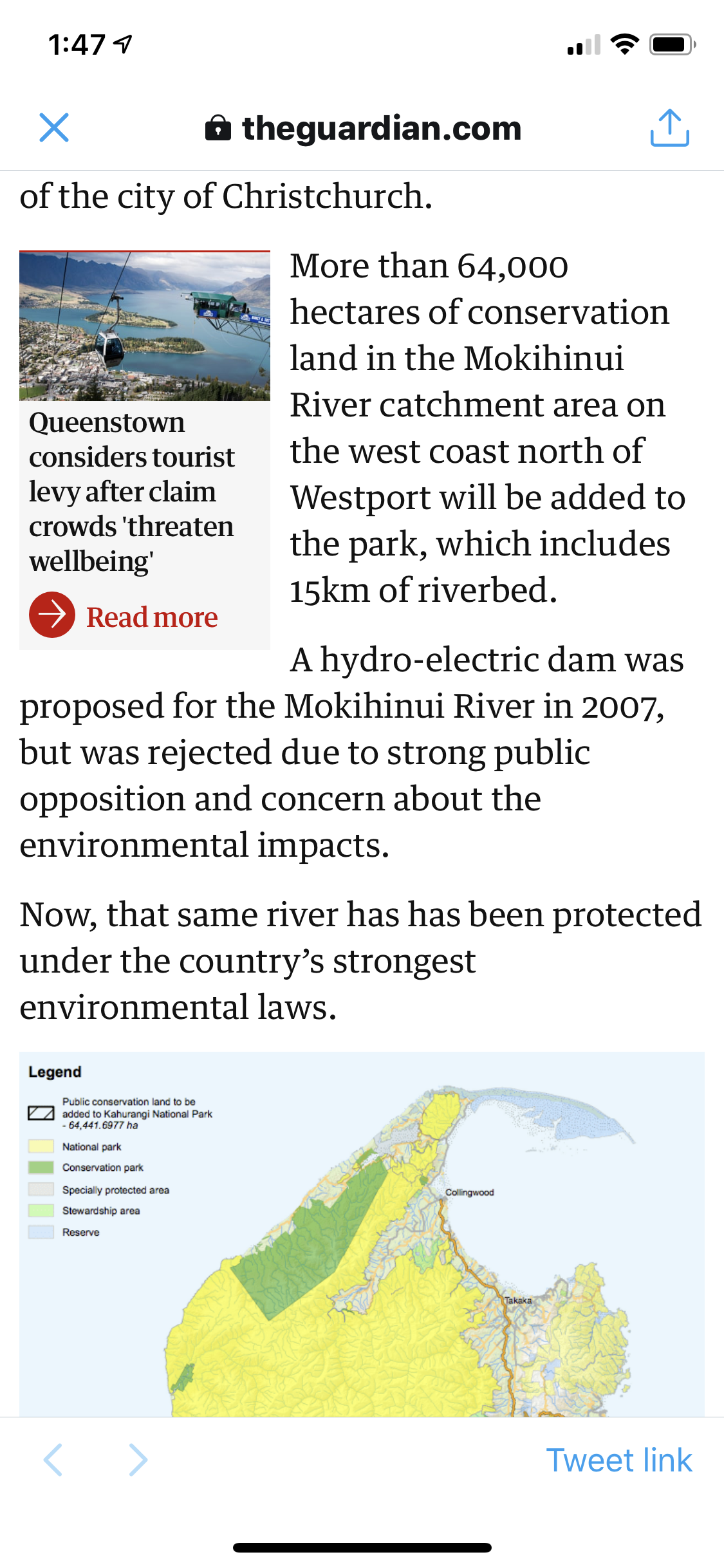An excellent resource. Its all over Christchurch
I’ve saved it twice!
An excellent resource. Its all over Christchurch
I’ve saved it twice!
I just got this email from Debs Martin.
This is a cause worth getting in behind!!
~~
Greetings to all Save the Mokihinui supporters
(and apologies if you receive this email more than once),
Thanks for your efforts over the past few weeks to pass on the message to Meridian that damming the Mokihinui is unacceptable. Over 2600 emails have been sent and numbers are still rising. March 31st is the last date for sending an ecard – so let your family and friends know!
How else can you help us win the battle?
To assist with the Environment Court case, we have
just launched our Save the Mokihinui shareholding
campaign.
You can purchase one of 140 limited edition shareholding
certificates (featured left) of $100 each – securing your
part in the battle to save the Mokihinui River.

Beautifully illustrated, the certificate encapsulates all that is valuable in the Mokihinui – from its enigmatic great spotted kiwi to its earthquake-shattered limestone gorges.
We hope this certificate will be an important piece of Mokihinui memorabilia in years to come as a reminder of battles won!
To buy your certificate and virtual plot click here.
Warm regards,
Debs Martin
Regional Field Officer
Top of the South
Royal Forest and Bird Protection Society of NZ Inc
03-989-3355
14/03/19

This websites is full of manifestos punk cyber anachist.
Collecting manifestos, better than stamps!
A bit from Hakim Bey
Manifesto of Poetic Terrorism:
Poetic Terrorism is an act in a Theater of Cruelty which has no stage, no rows of seats, no tickets & no walls. In order to work at all, Poetic Terrorism must categorically be divorced from all conventional structures for art consumption (galleries, publications, media). Even the guerrilla Situationist tactics of street theater are perhaps too well-known & expected now.
I looked again at a post from 2002, on the Immediast approach.
https://psyberspace.walterlogeman.com/2002/immediast/
It must be an obscure thing, there is not much on it that I can find, yet it is alive and well! In the search I came across Hakim Bey again, who was on the horizon in the Psyber-l days. I quoted him in my research on the archetypes of cyberspace.
He comes in with the word Immediatism. Related?
I think the first is about the media and the second about the here & now, but they are both political arty philosophies. I am making the note because I might want to get back to it.
I came across them again because the protests in the middle East are on my mind, and also how people power is needed to recover from this earthquake.
At the heart of the SDS was the Port Huron Statement. See more on Wikipedia, and the text follows. Or maybe this is the full text here.
Politics and psychological explorations, climate and psychodrama, politilal dialogues; links to items of that nature.
Resource post.
Cognitive and Behavioral Challenges in Responding to climate Change.pdf
The item from the Guardian on clicktivism I linked to in the last post has a potent prediction in its conclusion. I like the sentiment. It is not enough though. Jettisoning the methods of marketing is fine, but what then? How to truly embrace the power of the net & social networks in an emerging world, how that can be done in a radical revolutionary way is not yet evident. Do Wikipedia, Linux, Facebook have something that can be harnessed for a greater purpose? How?
Clicktivism is ruining leftist activism | Micah White | Comment is free | guardian.co.uk:
In place of measurements and focus groups will be a return to the very thing that marketers most fear: the passionate, ideological and total critique of consumer society. Resuscitating the emancipatory project the left was once known for, these activists will attack the deadening commercialisation of life. And, uniting a global population against the megacorporations who unduly influence our democracies, they will jettison the consumerist ideology of marketing that has for too long constrained the possibility of social revolution.
I just watched the movie Zeitgeist: Addenda Here: http://video.google.com/videoplay?docid=7065205277695921912#
I got to it because I saw in Google news that the movie is showing in Christchurch tonight. What I like about the movie is that it shows the end is night. It shows the nature of the problem, essentially the crumbling of the US empire.
It does it quite well! It shows the power of the IMF and World bank, the corporations, and shows really well how the US conducts its empire. It is holistic in many ways, drawing on people from a lot of fields for their opinion.
Critique and and a link follow, and a pdf:
NZ should invest in this instead of damning the Mokihinui River. Imagine!
Item on Green Optimist Blog Clearly shows how a house might look using this system. Continue reading “DIY Energy from hydrogen – forget dams”